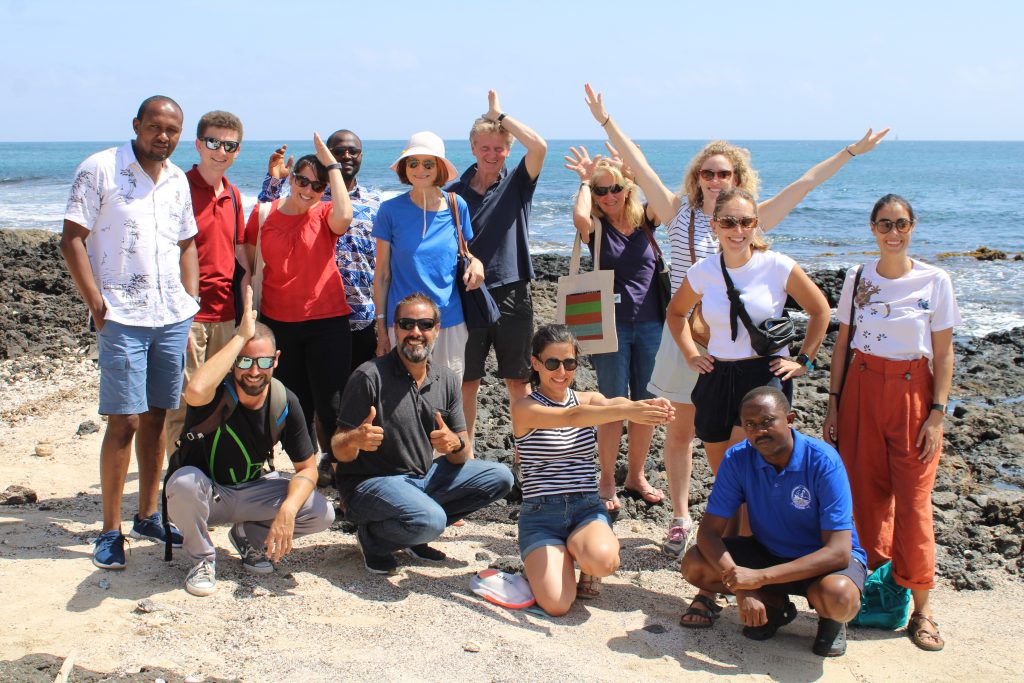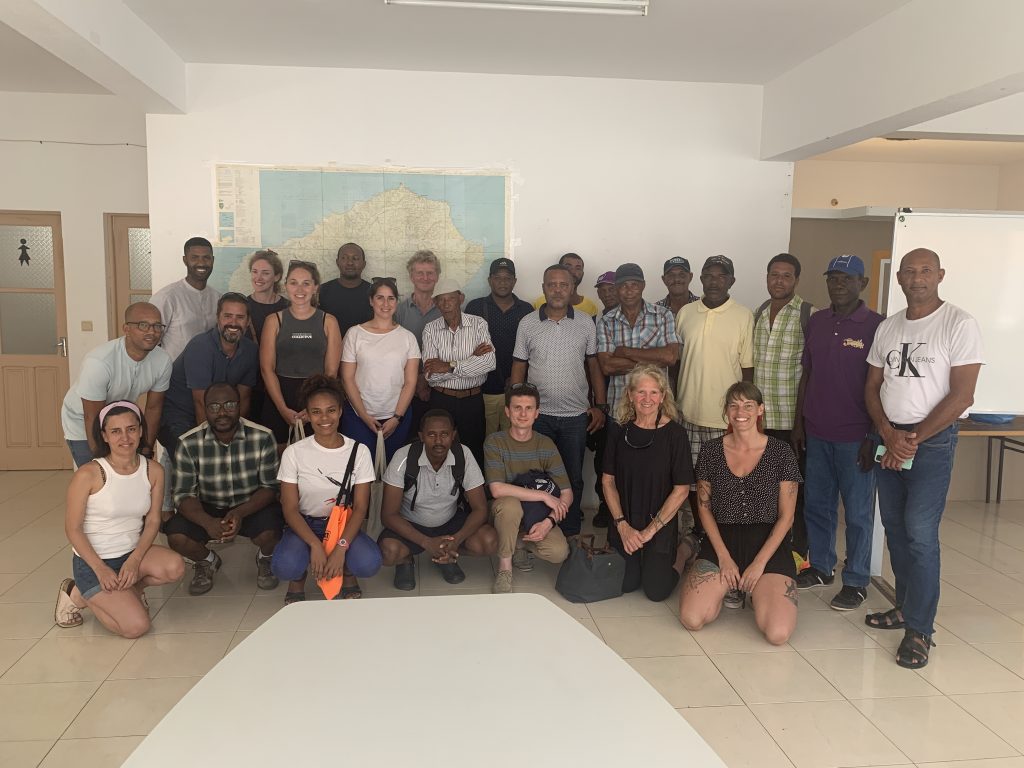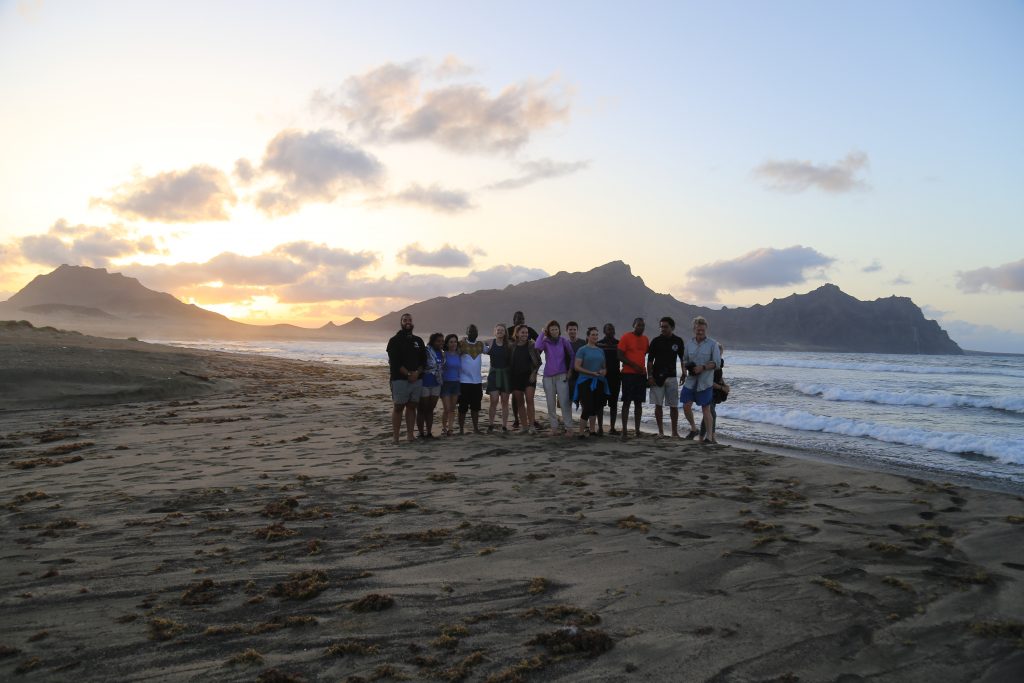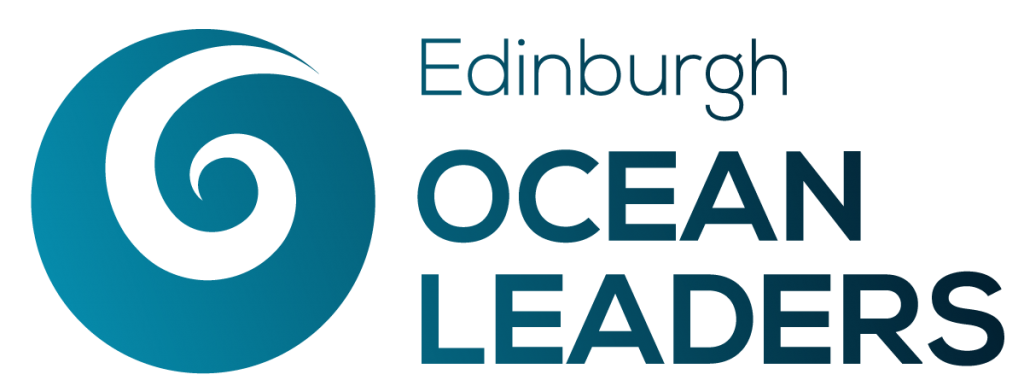At the end of October last year, the 2022 Ocean Leaders met in person for the first time as they embarked on the inaugural international Edinburgh Ocean Leaders field mission.
The field mission took place in Cape Verde – home to Ocean Leader Fellow, Tommy Melo and his NGO, Biosfera. With not one of the participants having ever visited Cape Verde previously, it was an opportunity for the 2022 cohort to discover and learn about the successes, but also the challenges confronting the people of Cape Verde and their relationship with the ocean.
Cape Verde has a complex and internationally significant ocean setting. It has the largest area of ocean of any West African – three times larger than the next significant marine territory and is a global hotspot for marine life.
Climate change, habitat destruction and illegal fishing pose a serious threat to Cape Verde’s marine life and the livelihoods of the coastal fishing communities. Up to 80% of residents on Cape Verde islands depend on the ocean for their income and food security.
Through the enriching experiences organised by our captivating host and his inspiring team, we were taken on a deep dive exploration into Cape Verdean culture, history and present-day issues relating to the sea.

The Trip
After flying in from all corners of the world, we hopped straight onto Biosfera’s boat (an ex-sea shepherd patrol vessel). At the helm was Tommy’s father and co-founder of Biosfera, José, who took us on a five-hour ride south of Mindelo to the uninhabited island of Santa Lucia: arguably the birthplace of Biosfera for Tommy.
We spent the afternoon on Santa Lucia tagging sharks, beach cleaning, spotting the endangered endemic Raso shearwaters and bodysurfing. That night we camped under the stars and the next morning made our way back to Mindelo, stopping off to snorkel and swim in the crystal-clear waters of Praia de Portinho.
The week continued with the same level of vigour, including an exciting ocean literacy education event organised by Ocean Leader Fellow Yolanda Sanchez at the Salamansa community school, visiting a shrimp aquaculture project, touring a local waste processing facility, meeting with an inspiring women’s group transforming fishing nets into clothing, visiting a locally-led natural history museum, swimming with sea turtles in a managed conservation zone, and taking part in a beach clean campaign with an army of local volunteers.
We also ventured for a day trip to the island of Santo Antão – the neighbouring island of Sao Vicente. In stark contrast to the arid environment of Sao Vicente (which received its first day of rain in 5 years during our trip!), the richness of Santo Antão was breath-taking –steep river valleys, towering green peaks and terraced sugar cane plantations gave way to cliff-hanging coastal fishing villages and spectacular panoramas. “My feeling whilst I was there, was of being very close to the land and sea. There are few places remaining as untouched as Santo Antão.” recalls Sandra Morson, Executive Leadership Coach.
Facilitated by the Biosfera team, it was here that we engaged in a knowledge exchange with a local fishing community – a community facing many of the same challenges as the Ocean Leaders in their own professional roles and ocean contexts.

“There is no better way to learn about the world than while making a field trip with a group of very different people coming together to a place they have never been to to explore, to immerse, to listen and to exchange and share!” reflects 2022 Ocean Leader Boris Solovyev. “I learned so much during this trip from my friends – Ocean Leaders, from our hosts – Tommy and Biosfera, and from Cape Verde and its people. On one hand it was my first ever trip to Africa, to environment which is so different to the polar regions where I used to work; and at the same time it was very clear that the issues coastal communities are facing are so similar everywhere in the world.”
Written by Jessica Arnull, EOL Programme Assistant


